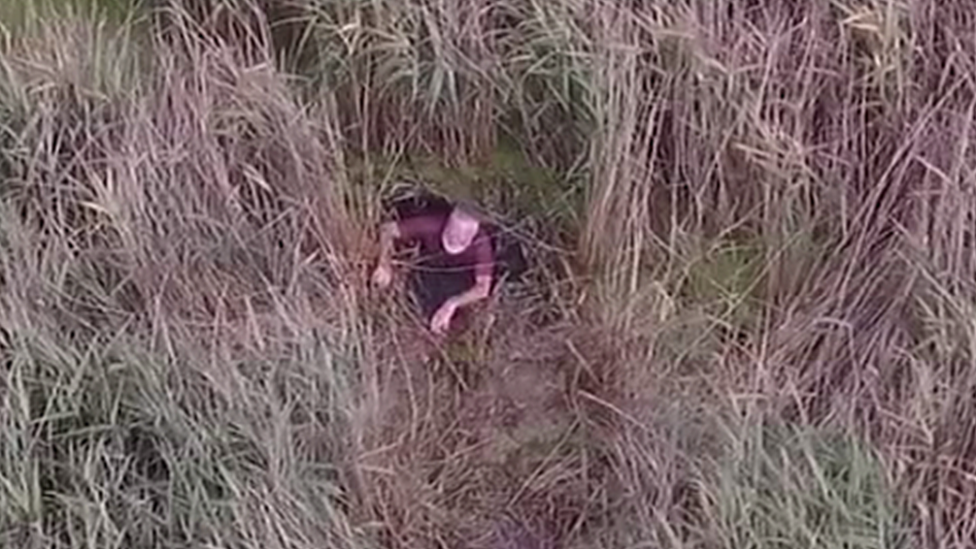Drones being tested to be police first responder
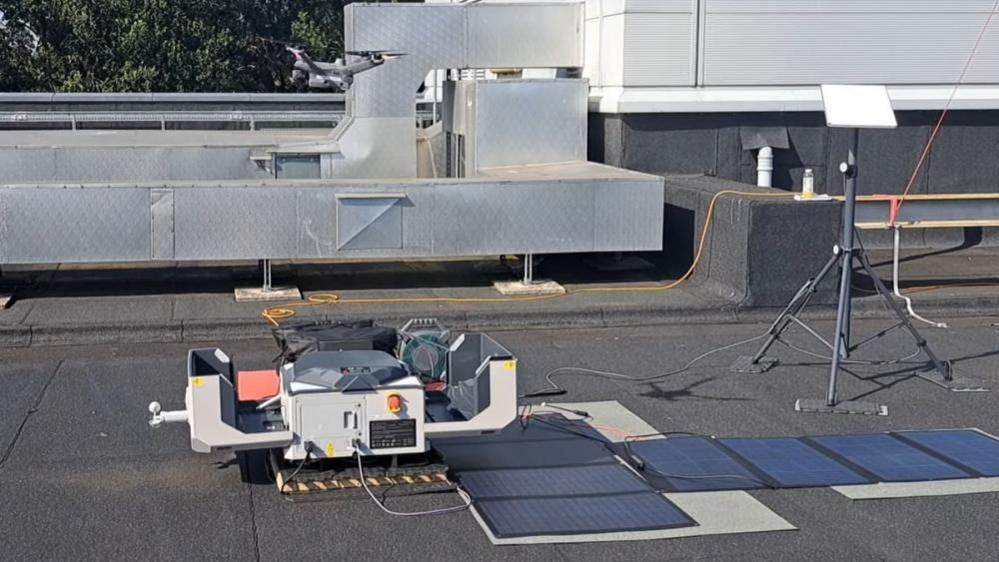
The drone is housed in a box mounted on the roof of the University of East Anglia
- Published
Drones are being tested in Norfolk which could lead them to becoming the first response to some incidents.
The force is one of four taking part in trials set up by the Home Office and the National Police Chiefs' Council.
Norwich was selected as a test location because the force has used drones with pilots since 2017, the area has a relatively flat topography and air traffic control at Norwich Airport shows police where other aircraft are operating.
If the trials are proved safe and successful it could see drones used remotely from a control centre, instead of being operated with a line of sight of the pilot.
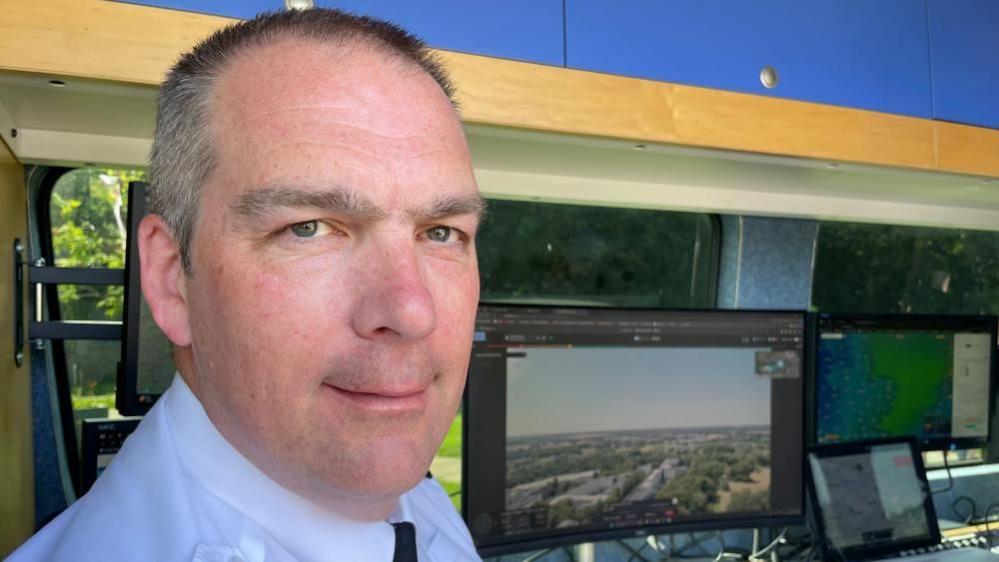
Supt Phill Gray says the drones need to be proved to be safe before they enter operational duties
The first drone to be put under trial is housed on a building at the University of East Anglia. Norfolk Police say up to five drone sites could cover the entire city.
Supt Phill Gray said: "We've used drones for a long time.
"This will give us a a control centre that can launch a drone at designated sites through Norwich to get to the scene in a timely fashion."
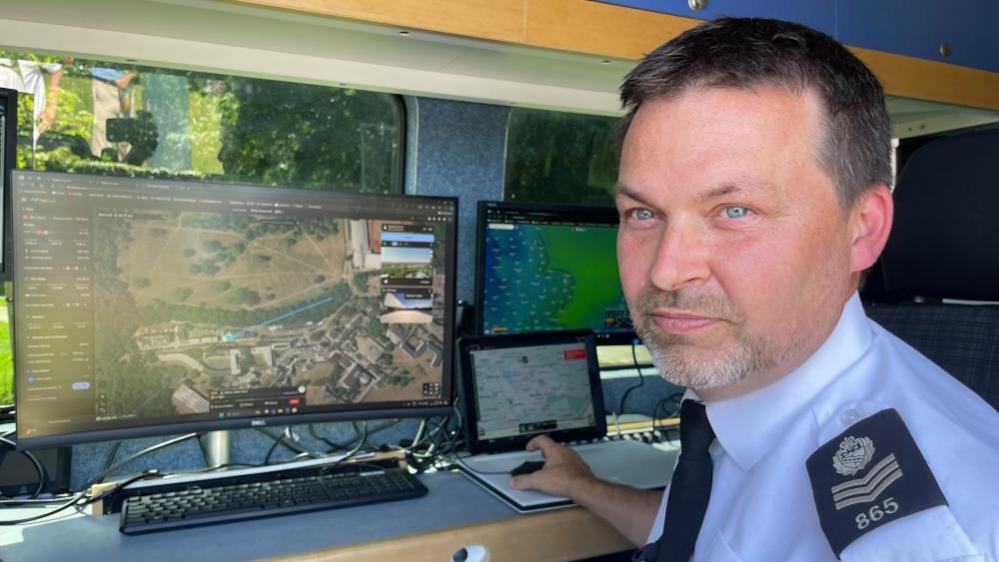
Drone sergeant Danny Leach says the drones could save lives
Sgt Danny Leach, who is the drone sergeant for Norfolk, said: "You think of areas where people go when they feel vulnerable and potentially want to end their life, or they get stuck or lost.
"Having the asset there that you can straight away log into and get it airborne as soon as that call comes in, is a huge difference.
"It could save huge resources, but also, it could save a life."
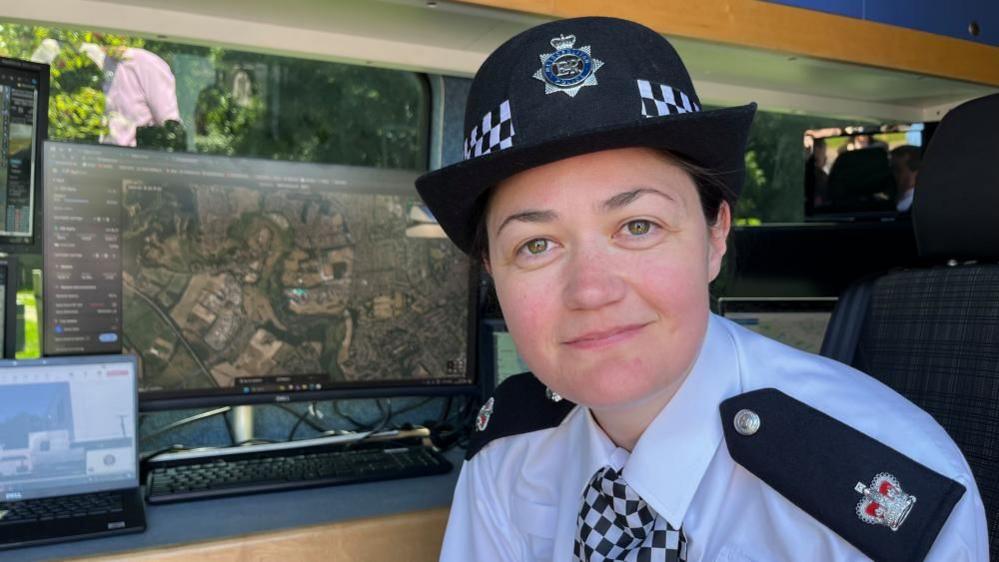
Supt Taryn Evans, from the National Police Chiefs' Council, says the intention is not to reduce the number of police officers
Supt Taryn Evans, who is running the project for the National Police Chiefs' Council, said: "We don't anticipate this replacing officers or the response they give to emergency calls in anyway whatsoever.
"What we do hope to see is that gives them enhanced advantage in working out how to respond to those same calls.
"It might be that there's a risk there that wasn't reported to us by the people that called in that we need to be aware of and we would send different units there to deal with that accordingly."
But the project could undergo another two or three years of trials and analysis before becoming an operational part of police kit.
Supt Gray added: "We have to make sure it's safe. That is the key element that's going to take time.
"How long that is, I don't know. We are working very closely with the National Police Chiefs' Council and the Home Office to make sure that we have a safe operating model for beyond line of sight drone as a drone responder.
"It would be beneficial if in the next two or three years we are in a position where we could safely deploy that across the country."
Get in touch
Do you have a story suggestion for Norfolk?
Follow Norfolk news on BBC Sounds, Facebook, external, Instagram, external and X, external.
- Published19 November 2023
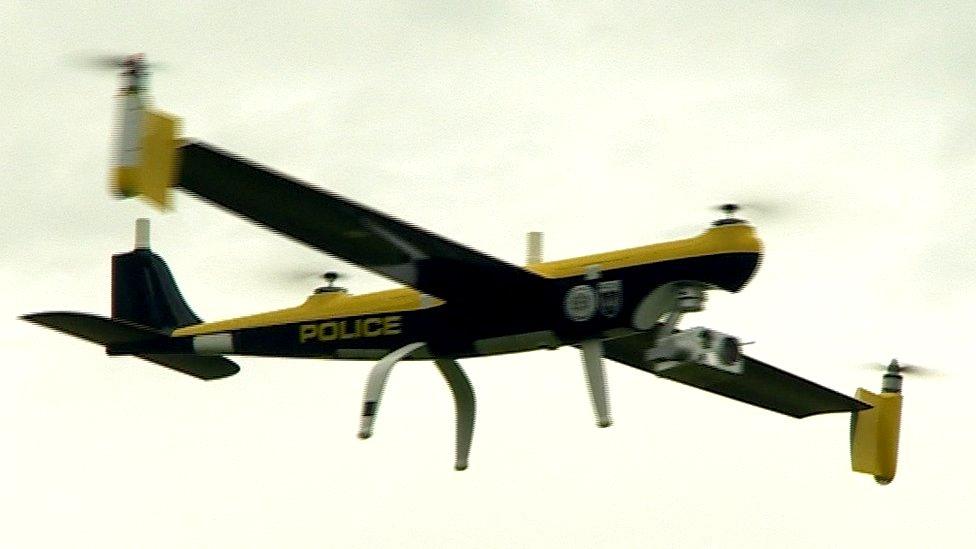
- Published9 January 2020
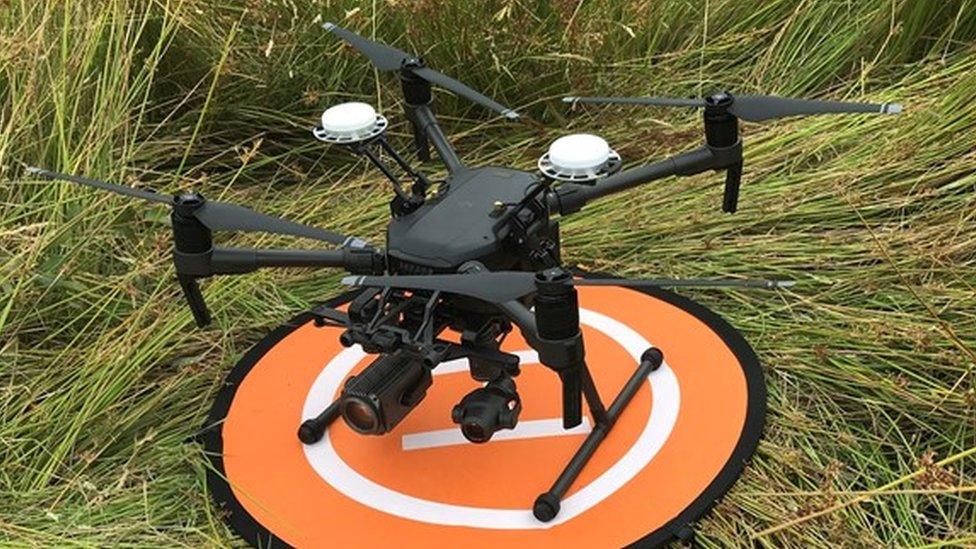
- Published19 June 2018
